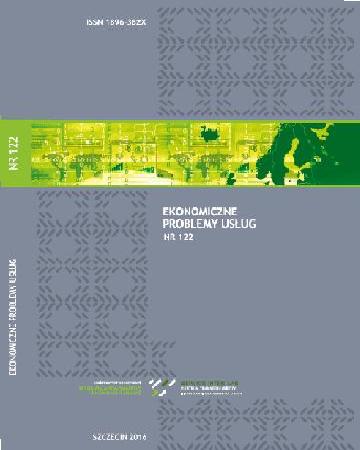
ISSN: 1896-382X
eISSN: 2353-2866
OAI



Issue archive /
nr 117 2015
Znaczenie targów w procesie przekazywania informacji– kontekst ery informacyjnej
(The Significance of Trade Fairs in the Process of Sharing Information – the Con-text Of Information Age)
| Authors: |
Marcin
Gębarowski
Politechnika Rzeszowska |
| Keywords: | trade fairs information function of trade fairs information age |
| Data publikacji całości: | 2015 |
| Page range: | 10 (93-102) |
Abstract
For many decades, trade fairs have been perceived as multifunctional events enabling exhibitors to accomplish diversified goals. In the age of information society, however, up-to-date and alternative to trade fairs forms of communication – including mainly the Internet, are becoming more and more significant. In that context, it is worth pondering what is the present image of trade fairs in terms of sharing information. Therefore, the aim of the article is to determine the contemporary perception of the information function of trade fairs. To attain that goal, literature on the subject has been analysed and research among exhibitors has been conducted.
Download file
Article file
Bibliography
| 1. | Bettis-Outland H., Cromartie J.S., Johnston W.J., Borders A.L. (2010), The return on trade show information (RTSI): a conceptual analysis, „Journal of Business & Industri-al Marketing” 25(4), s. 268–271. |
| 2. | Bettis-Outland H., Johnston W.J., Wilson, R.D. (2012), Using trade show information to enhance company success: an empirical investigation, „Journal of Business & Indus-trial Marketing” 27(5), s. 384–391. |
| 3. | Gębarowski M., Wiażewicz J. (2014), Contemporary Trade Shows as a Place of Knowledge Sharing about Tourism Products, w: Human Capital without Borders: Knowledge and Learning for Quality of Life, Proceedings of the Management, Knowledge and Learning Intern |
| 4. | Gębarowski M. (2010), Współczesne targi. Skuteczne narzędzie komunikacji marketin-gowej, Regan Press, Gdańsk. |
| 5. | Kałduński M. (2002), Targi i wystawy międzynarodowe. Studium prawne poprzedzone wstępem historycznym, Top Kurier, Toruń. |
| 6. | Kirchgeorg M. (2005), Characteristics and forms of trade shows, w: M. Kirchgeorg, W.M. Dornscheidt, W. Giese, N. Stoeck (red.), Trade Show Management, Gabler, Wiesbaden. |
| 7. | Kirchgeorg M., Jung K., Klante O. (2010), The future of trade shows: insights from a scenario analysis, „Journal of Business & Industrial Marketing”, 25/4, s. 301–312. |
| 8. | Maltz E., Kohli A.K.(1996), Market Intelligence Dissemination Across Functional Boundaries, „Journal of Marketing Research”, 33(1), s. 47–61. |
| 9. | Paap J. (2007), Competitive Technical Intelligence at Trade Shows and Professional Meetings, w: J. Calof, B. Hohhof (red.), Conference and Trade Show Intelligence, Competitive Intelligence Foundation, Alexandria. |
| 10. | Pine B.J., Gilmore J.H. (1998), Welcome to the Experience Economy, „Harvard Business Review”, 4(76), s. 97–105. |
| 11. | Servaes J., Carpentier N. (2006), Steps to Achieve a Sustainable Information Society, w: J. Servaes, N. Carpentier (red.), Towards a Sustainable Information Society, Intellect, Bristol. |
| 12. | Soete L. (1997), Building the European Information Society for us all. Final policy report of the high-level expert group, European Commission, Luxembourg. |
| 13. | Søilen K.S. (2013), Exhibit Marketing and Trade Show Intelligence. Successful Boothmanship and Booth Design, Springer, Heidelberg. |
| 14. | Szymański G. (2013), Innowacje marketingowe w sektorze e-commerce, Wydawnictwo Politechniki Łódzkiej, Łódź. |
| 15. | Webster F. (2002), Theories of the Information Society, Routledge, London. |
| 16. | Wojciechowski H.(1986), Targi i wystawy gospodarcze, PWN, Warszawa. |